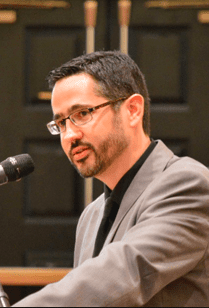 St Francis never said it so far as we know, but many have attributed it to him: “Preach the gospel at all times. If necessary, use words.” Whether he said it or not, many today think the primary form of proclaiming the kingdom is through deeds/works and not through words.
St Francis never said it so far as we know, but many have attributed it to him: “Preach the gospel at all times. If necessary, use words.” Whether he said it or not, many today think the primary form of proclaiming the kingdom is through deeds/works and not through words.
Hence, John Nugent, in Endangered Gospel, examines how the church is to relate to the world. After sketching how neglected the church can be in social perceptions of goodness and hope, Nugent offers an important reminder-cum-warning about the emphasis we hear today on the church’s deeds as the primary form of communication in the world over against manipulative evangelism:
This assumption risks turning a much needed corrective against cheap talk and coercive evangelism into the right to remain silent. The New Testament teaches otherwise (105).
So, how is the church to relate to the world?
Moralists focus on passages that address the worlds need to repent. Separatists focus on passages that emphasize the gap between church and world. Activists focus on passages that call for good works and care for the needy (105).
Nugent, who does theology by going to the Bible and who builds his theology brick by brick by examining the Bible in its narratival context rather than assuming the theological constructs of modern theologians (Augustine, Aquinas, Calvin, Luther, Barth, Pannenberg, Moltmann, Jenson, Volf), quotes various statements in the NT from Jesus (e.g., Luke 4:43; Matthew 28:19-20), Acts (Acts 1:8; 20:24-25), Paul (Romans 15:19-20; 2 Corinthians 5:15-20), and elsewhere (James 4:4; 1 Peter 2:9-12, 1 John 2:13-16; Revelation 6:9). Over and over, the church is to proclaim a message verbally in the context of a community life. I quote Nugent but reformat his words as he summarizes what these passages teach:
- All passages presuppose that those who are inside the faith are very different from those who are outside it.
- Believers and unbelievers are not “basically about the same thing.” They have fundamentally different life agendas. Most agendas lead to death; only the path of Christ leads to eternal life.
- These passages also make clear that verbal proclamation is central to Christian mission.
- People will not know what God has accomplished in our lives and for the world unless we tell them. They won’t be able to connect the dots simply by observing our good deeds and pious lives.
- It doesn’t matter whether we refer to our proclamation as testimony, witness, disciple-making, or fishing. What matters is that we verbally proclaim the gospel.
- These terms differ in small ways from one another, but they share a common commitment: each verbally introduces unbelievers to God’s kingdom and invites them into it (107).
The church’s mission is to embrace, embody and proclaim the gospel.
Preaching the gospel at all times is, indeed, the church’s calling. But in the New Testament, we are not instructed to do so by finding and fixing the world wherever and whenever it is broken. We do so by embracing Gods vision of a better world, displaying that better world in our life together, and proclaiming that better world to all who might enter it (108).















